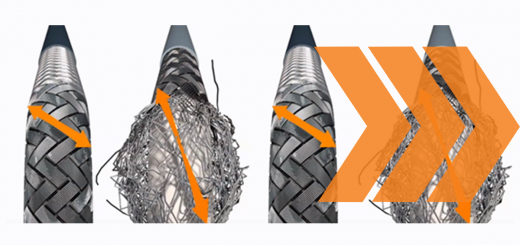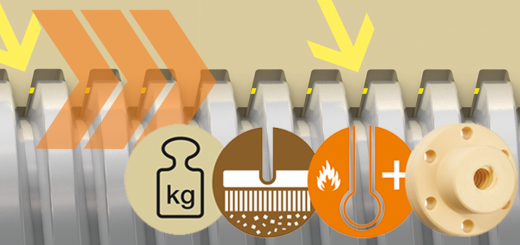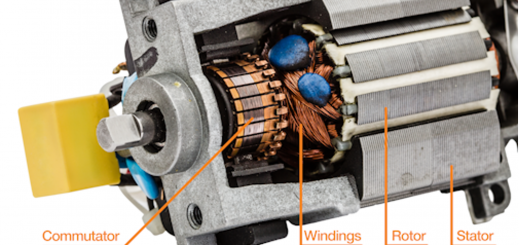Plastic gears vs metal gears: Which is the better option?
By Michael Moalli
The debate between plastic and metal components is a seemingly never-ending one. However, discourse has shifted in recent years in favor of plastic due to the wide range of benefits it can provide over metal. This is especially true for gears, and even more so for the tribologically optimized polymer gears available from igus®. Continue reading to learn about the specific benefits of iglide® polymer gears over metal alternatives.
Lubrication
Maintenance — but especially component relubrication — can be a time-intensive and costly process. Improper lubrication is a surefire path towards component failure, which is even more costly than maintaining proper lubrication. However, iglide gears have built-in solid lubricants that evenly disperse during normal operation. This means there’s no need for any relubrication or other regular maintenance and the likelihood of machine downtime is significantly reduced.
Weight
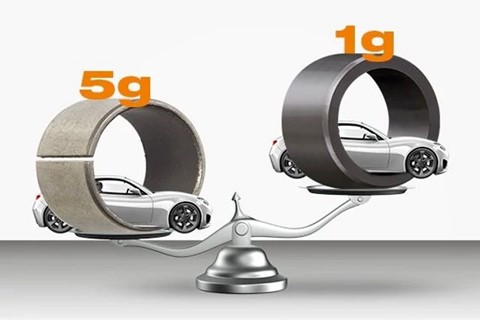
Simply put, plastic is lighter than metal. There’s no avoiding that fact, and it’s one that can sway many manufacturers above all else — especially in automotive and aircraft applications where weight directly affects emissions/fuel efficiency. Plastic components can often weigh up to five times less than a metal component of identical shape and size. iglide plastic gears are no different, and are the ideal choice for any application where weight is a key consideration.
Cost
Once again, there’s a simple fact at work here: plastic is less expensive than metal. Sometimes as much as 50% less! This difference in price can add up quickly, especially in cases of large batches numbered in the thousands. Even though iglide polymers are specially developed for high performance, they still come in at a lower price point than metal for gears, making them the economical choice in one-to-one comparisons.
Even more significantly, the lack of maintenance and relubrication as mentioned above contributes to further cost savings over the lifetime of the gear. This also means lubrication-related downtime is eliminated, which is one of the most common sources of downtime across all industries and applications.
Vibration & Noise Damping
When it comes to gears, vibration and noise levels are extremely important. Manufacturers and designers are always looking to achieve low noise and vibration, and plastic is the superior option to do so. iglide polymers are vibration and noise damping, ensuring performance is consistent long-term. Metal doesn’t offer anything similar to what plastic can achieve in this respect, once again making plastic the superior choice.
Corrosion & Chemical Resistance
One of the biggest weaknesses of metal gears used in damp or high moisture environments is their tendency to corrode. Of course, certain metals offer more corrosion resistance than others and surface treatments exist to help improve corrosion resistance as well. However, plastic gears are completely corrosion resistant from the get-go. There’s no need for additional treatments or to worry about levels of moisture in the air. Many iglide materials even offer varying levels of chemical resistance for applications that may require harsh chemical washdowns that would be too abrasive for metal.
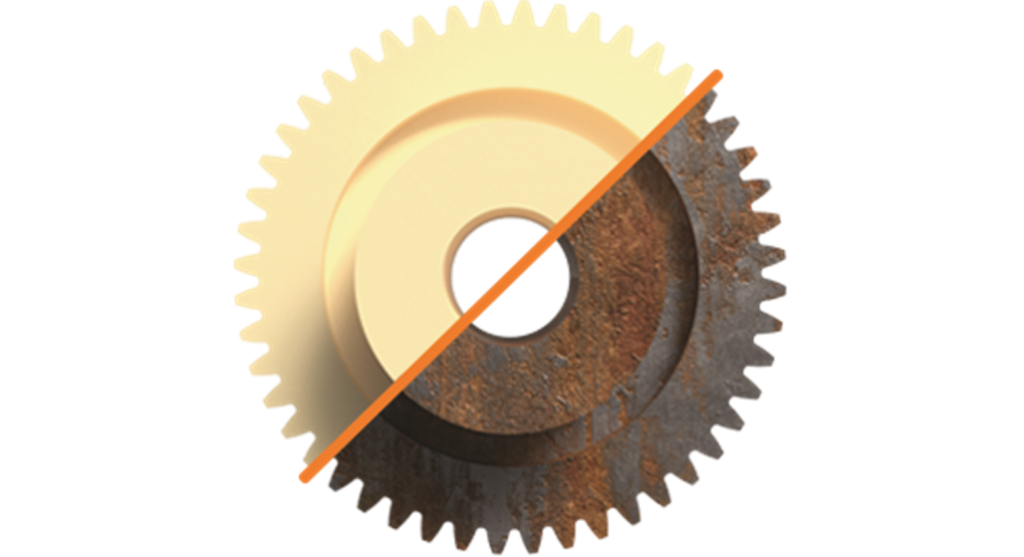
Available from Stock
With supply chain issues still plaguing many manufacturers, simply having components ready to ship from stock is an achievement. igus has managed to avoid many of these issues, with over 600 standard gears from stock including spur and bevel gears, gear racks, and angular gearboxes. Much of the product line is available to ship from igus’ Rhode Island warehouse in as little as 24 hours.
Material Options
You may think in terms of types of materials available, metal has the advantage. Bronze, steel, aluminum, brass and more can all be used as viable materials in gears. However, iglide gears are available in five different injection molding materials, over 10 different 3D printing materials with options available for FDM, SLS and DLP printing, as well as over 35 different barstock materials for machining.
Custom Gears
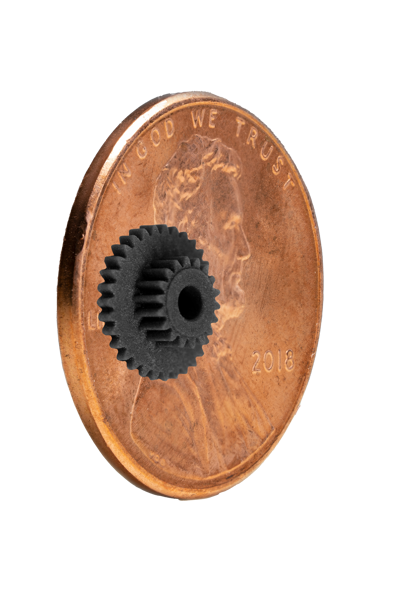
Finally, one last advantage of choosing plastic over metal for gears is the wide range of custom gear options available. Not only can custom 3D printed gears be manufactured, but even machined and injection molded gears can be customized.
3D Printing: igus’ online 3D printing service can be used to print custom gears via FDM, SLS and DLP printing methods, each using high-performance iglide materials. The iglide resin for DLP printing can even achieve a gear tooth module of 0.2 and a resolution of 35 μm, so the smallest gears can still be printed.
Injection Molding: While it may come as a surprise, custom injection molding is possible, and quite easy as well. The print2mold® service from igus can be used to 3D print custom molds used for injection molding, opening up a much wider range of materials to be used for custom components. Of course, our full range of standard gears including spur gears, bevel gears, and gear racks are still available through our injection molding service.
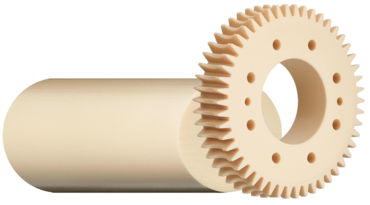
Machining: If you need the tight tolerances that CNC machining offers, plastics can still provide a solution. igus offers plastic bar stock in over 35 different materials for use in machining. These materials have various properties such as FDA-compliance, high temperature-resistance, low coefficient of friction, and more.
Conclusion
When it comes to the discussion of plastic gears vs metal gears, plastic gears are clearly the superior choice. Whether you’re looking at cost, weight, maintenance needs, or a number of other aspects, plastic still comes out on top over metal.
To learn more about iglide gears, check out our website. For questions about a specific application, contact an iglide expert or fill out and submit an application checklist!

